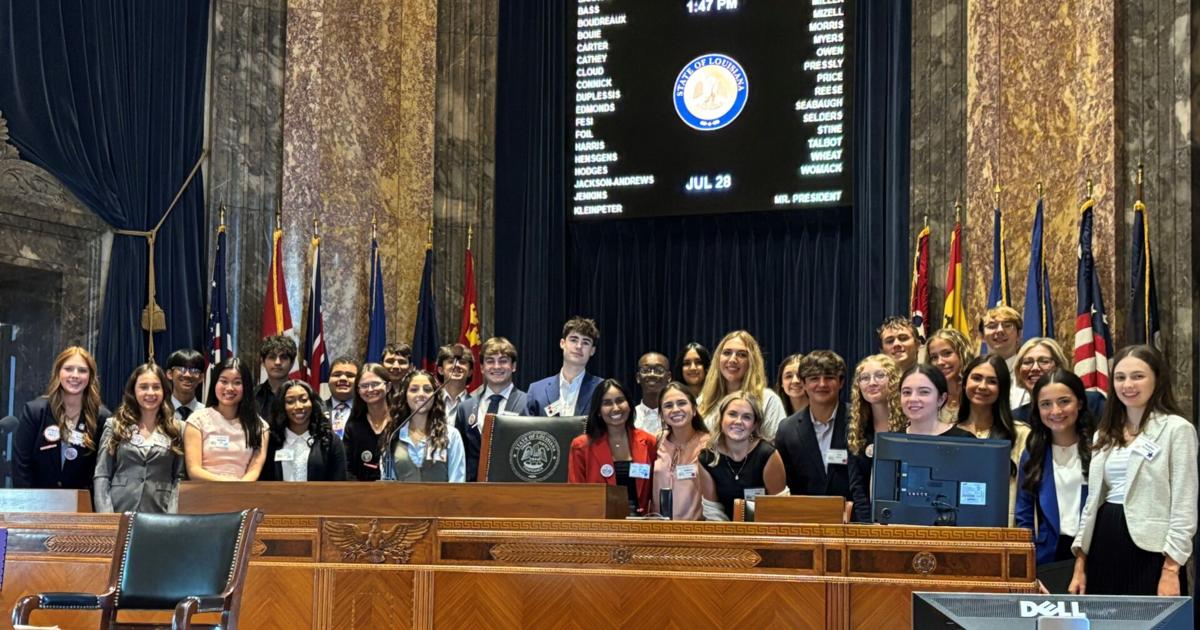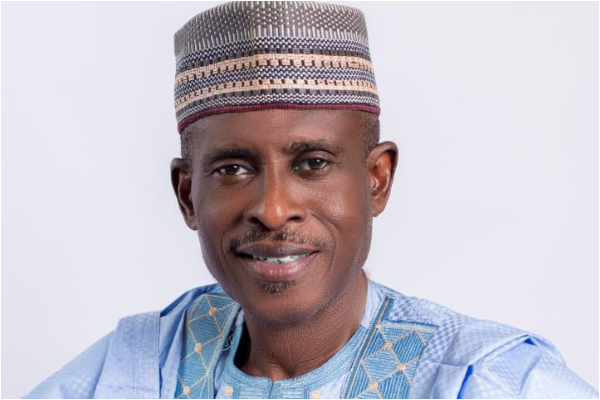
Thirty-one Louisiana high school students are taking school safety, mental health and youth involvement in civic matters into their own hands through the Louisiana Legislative Youth Advisory Council.
The advisory council was created to give high school students a voice in addressing critical local issues and advocating for policies that improve student welfare. It gives students that have an interest in representing the voices of young people a direct voice in shaping policy.
“Programs like LYAC are so important because they give students an actual seat at the table,” said Everett Etié, a senior at Erath High and the council’s spokesperson. “We’re the ones in the schools, and our voices matter when decisions are being made.”
One of the council’s top priorities for the the current school year is enhancing student safety, particularly concerning construction and infrastructure. Members are determining if regulatory actions are necessary to ensure that new construction projects do not pose risks to young people. This initiative is a continuation of the council’s previous work on safety, including the School Safety Act passed two years ago.
“Since the passing of the School Safety Act two years ago, and now we’re trying to build on that with another series of bills,” John Parker, a senior at Covington high and a member of the council explained.
This year’s initiative includes a three-step process that includes tracking violent incidents through the state fusion center, improving planning, and making sure schools are safe before these crises happen, Parker said.
Beija Lopes-Morgan, a Mandeville High senior serving her second term on LYAC, said last year’s council pushed through Senate Concurrent Resolution 40, which established a statewide K-12 school safety task force. “We’re meeting with key stakeholders like State Police, the fusion center, school boards because this issue is bigger than just students. It takes collaboration,” she said.
These local initiatives reflect national concerns. Over the past two decades, school shootings have become more frequent, and research shows that student exposure to such tragedies has nearly tripled in recent years. In Louisiana, nearly one in four children ages 3–17 has been diagnosed with conditions such as ADHD, depression or anxiety, according to America’s Health Rankings. Suicide is also one of the leading causes of death for youth ages 10–24 in the state.
For many LYAC members, those statistics show why mental health is a part of school safety. “It’s not just about preventing violence; it’s about making sure students feel supported every day,” said Purba Das, a senior at Lafayette High.
She said greater access to mental health counselors and equitable funding for school resources are essential. Etié said the council sees mental health as a foundation for everything else they’re working toward. “If students aren’t well, nothing else in the classroom really works,” he said.
Beyond safety and mental health, LYAC members are pushing to increase youth involvement in civic matters. Lopes-Morgan, who additionally serves as the student representative on the Louisiana Board of Elementary and Secondary Education, said the council helps to make policy changes easier to understand for students.
“A lot of students don’t know about LYAC or even how our legislative process works,” she said. “Sometimes it’s hard for teenagers to figure out who they can talk to about issues. LYAC shows us that politics is affect our everyday lives.”
The council members are determined to reverse national trends locally through safety initiatives and by connecting students statewide to civic opportunities.
“We’re not just the leaders of tomorrow,” Etié said. “We’re leaders now.”
To apply for next year’s council, visit house.louisiana.gov. Applicants must be between the ages of 14 and 19, and enrolled in a public or private high school, a home school program, or a GED skills program. Three members are appointed from each of the state’s six congressional districts and the remaining members are at-large appointees.



